The Disharmony of Grief: Why We Wrote “Pulses”
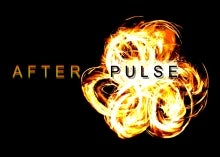
"Pulses," by Basil Considine and Courtney Stirn
Last Call at Pulse Nightclub, and Then Shots Rang Out was the headline. Then, underneath it, Saturday was Latin Night at the club, which bills itself as ‘Orlando's Premier Gay Nightclub’.
I read these words on the New York Times website the morning of Sunday, June 12, 2016, with a growing sense of shock and horror. Just seconds earlier, I had seen a friend’s Facebook status saying “Pray for Orlando,” and without consciously thinking touch-typed my search for “Orlando news.” This was how I learned of the mass shooting that had claimed the lives of 49 victims and wounded 53 others.
I did not expect to learn of a mass shooting and I did not expect a mass shooting to happen in Orlando, a city that I had visited twice in the last year for work, or to take place in Pulse, a club that I had seen mentioned in numerous guidebooks and hotel flyers. I did not, as no one really does, expect to read about a tragedy occurring in a place close to home. I was waking up in Arlington, Virginia, after working late into the night writing a vocal trio about a genius laboratory mouse, her soon-to-be field mouse assistant, and an absent-minded professor. Theoretically, I was going on Facebook as part of my morning routine of checking the news, reading web comics, and seeing what interesting things my friends and colleagues were up to. The tragedy caught up with me nevertheless.
At the time, I was enrolled in an intensive music composition program through Nautilus Music-Theater, where we changed projects and changed writing partners every two days. The last musical thoughts I’d had before bed were about my demented musical mice, and I’d hummed its lively, pulsing main melody as I’d readied myself for the day. Then that happy music was far from my head.
When I got back to Minnesota, I was paired with librettist Courtney Stirn for our new Nautilus project. The prompt? “Write about intense emotion. Don’t make it a patter song.” Talking about ideas for the project, however, seemed swept under by the emotional turmoil; as Courtney said to me, “I can’t think about anything besides Orlando. That could have been me.” Eventually, we decided to confront this emotional impulse and capture it in words and music, deciding that when there is no other coherent response, art itself is a response.
The central conceit of “Pulses,” a musical theater song with Classical music roots, is to show three different people reacting to the Pulse shooting the morning after. The song begins with the sound of church bells tolling 7 AM, followed by a reading of the opening line of the New York Times article on the shooting. We specifically chose a fugal idiom because of the use of Baroque organ and choral music at funerals.
“I just wanted to dance,” is the first sung line—a line that Courtney penned to encapsulate the idea of wanting to simply live and exist in a safe space with no judgment and no danger. This line, repeated across the different voices in variations, becomes the seed and subject for a musical fugue in three parts, focused respectively on shock, anger, and grief. Marisol (shock) was present at the club and survived, Skylar (grief)’s boyfriend was present at the club and died, and Diana (anger) takes all this in when she turns on the television and watches the morning news. The three voices reach a climax in the homophonic singing of “Rip me open!”, a line that Courtney wrote to express the anguish surging through the LGBT community. The harmony is an open fifth – the sound of a bell and the sound of a community painfully missing something that used to make it complete.
The second half of “Pulses” is a quasi-Biblical exploration of grief. “I want something that feels old,” Courtney told me. “Something that feels Biblical, because this feels so big and terrible that I really don’t know what to do.” The resulting text uses words like “salt” and “gold” and the metaphor of a price for personal and collective sins. To me, the text especially evokes the Lamentations of Jeremiah, written after the destruction of Jerusalem in 587 BCE. I took the text and spread it across three voices, bringing some of it back as unanswered questions shouted and sobbed at the world. This time, the canon in the fugue is inverted in Diana’s response, only to break apart from the force of Skylar’s anguish. “How much do you need?” they cry out. “How much do you need for our breath?”
“Pulses” is dedicated to the victims of the 2016 Orlando shootings.
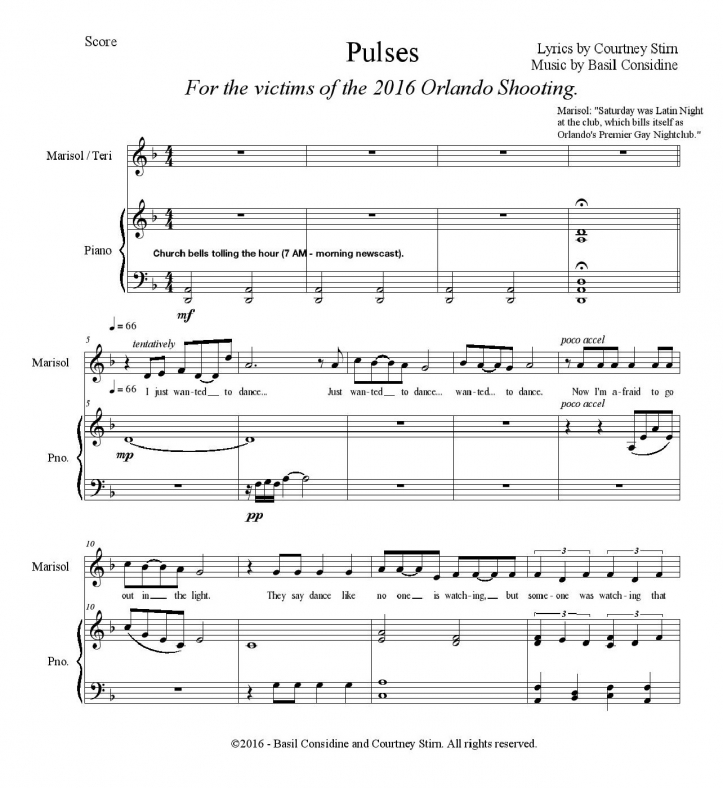
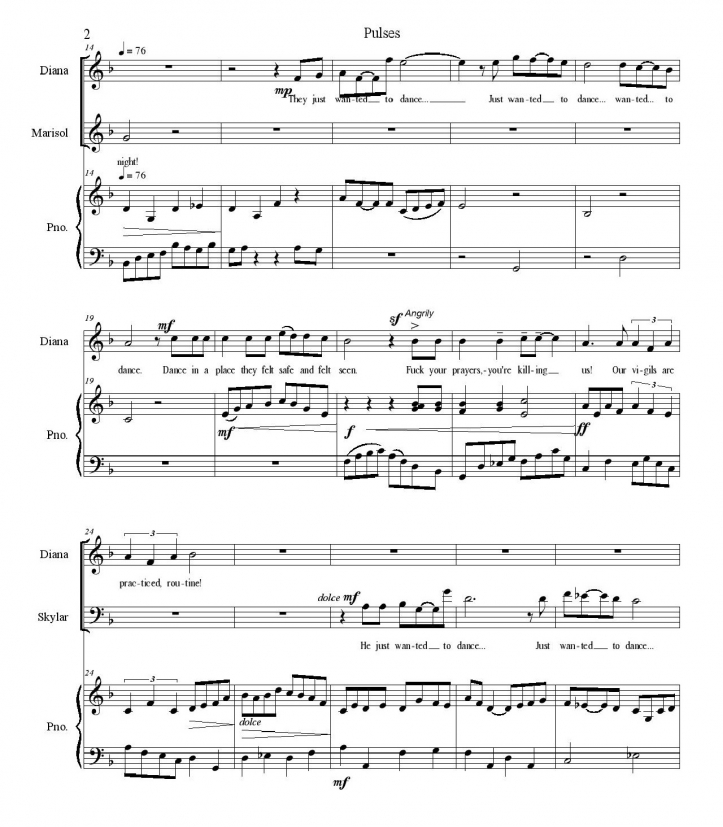
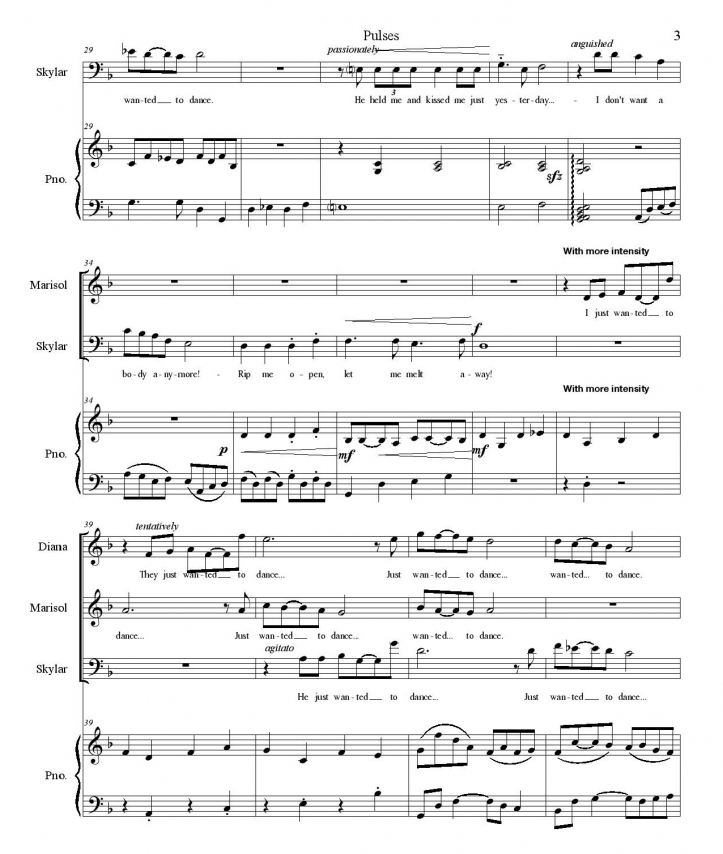
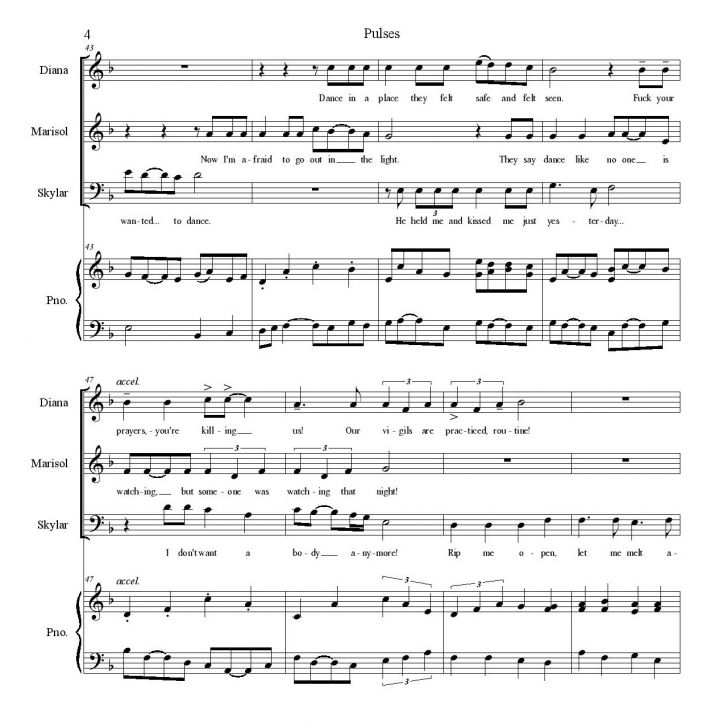
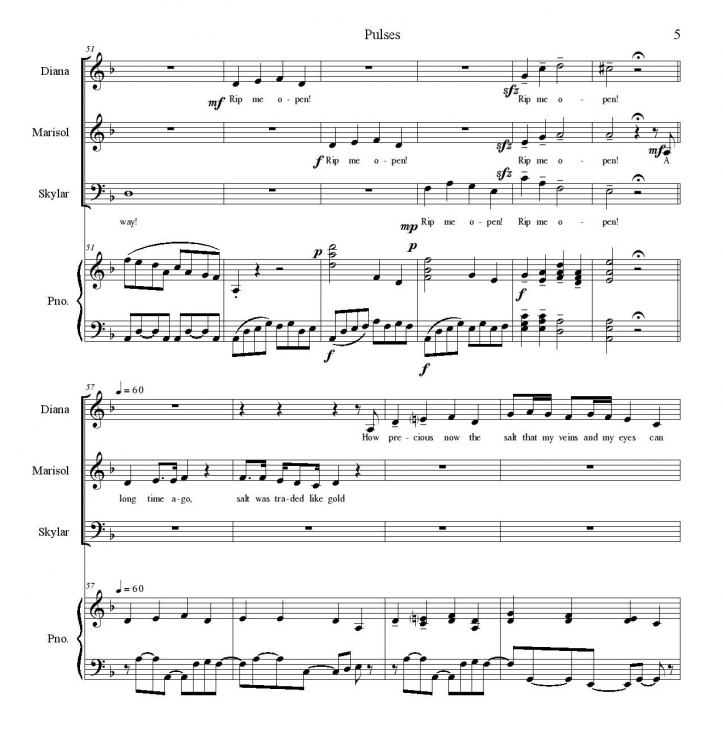
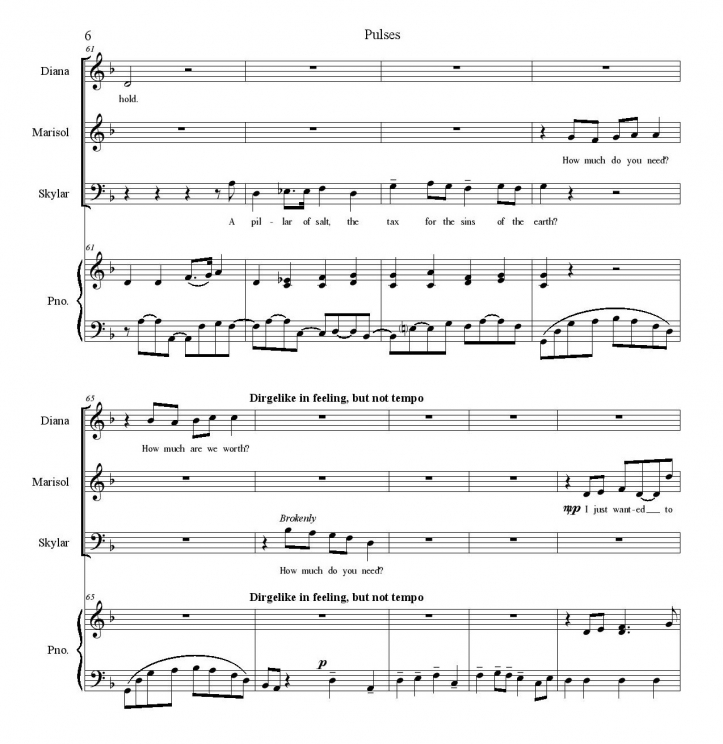
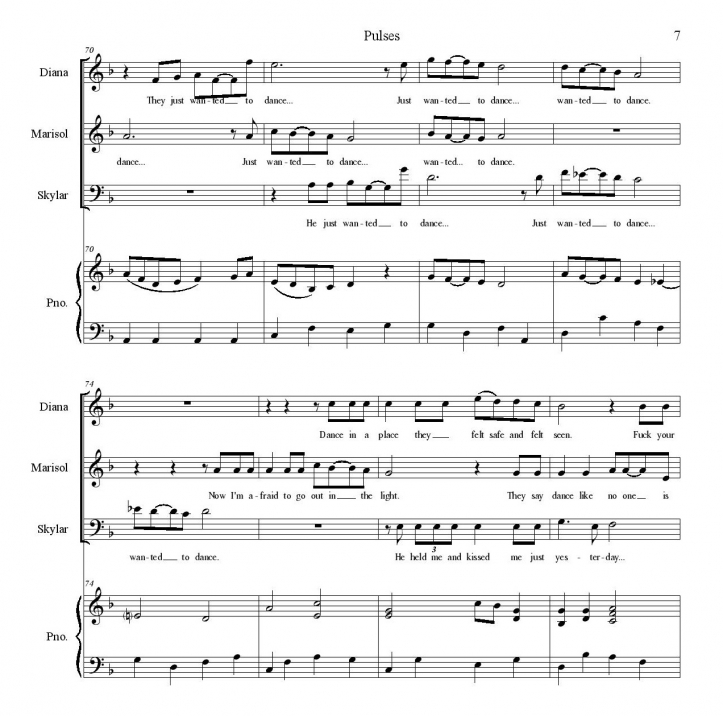
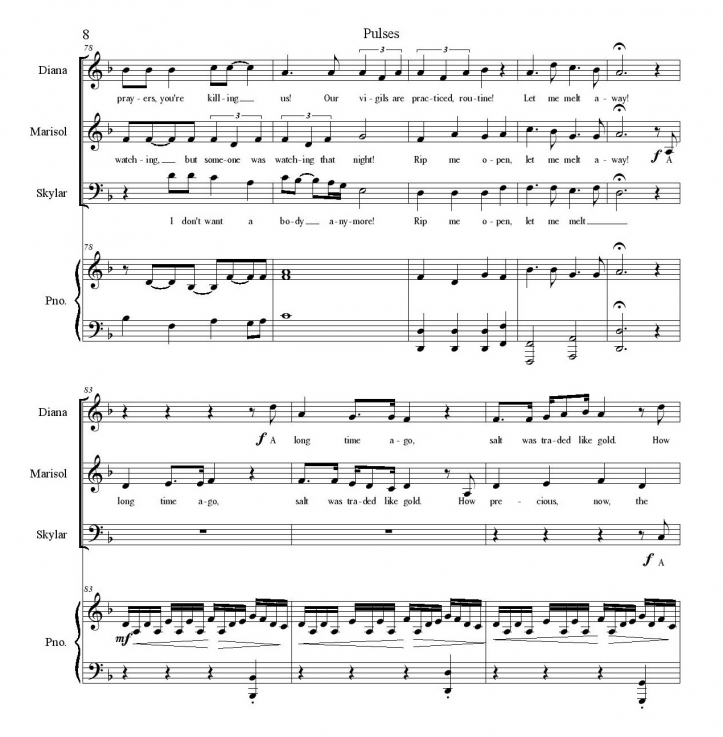
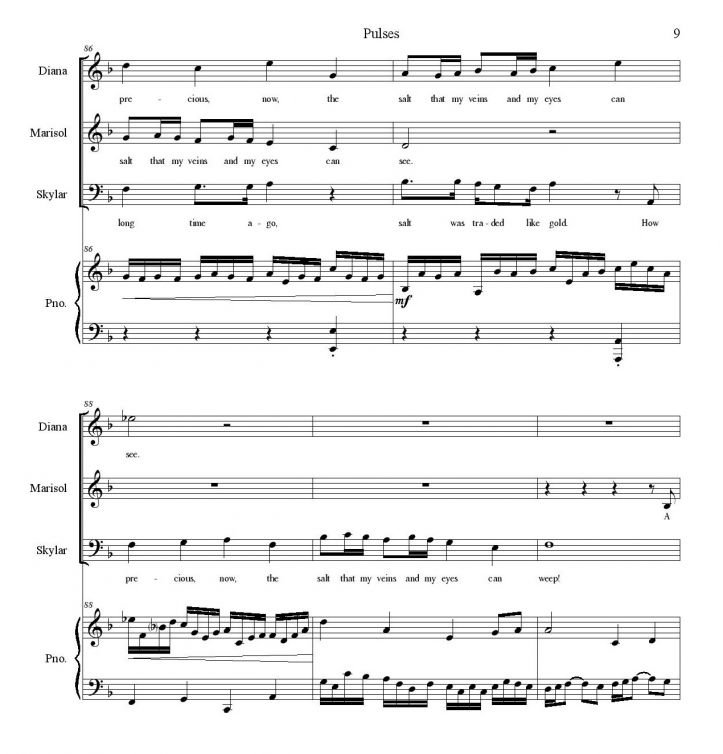
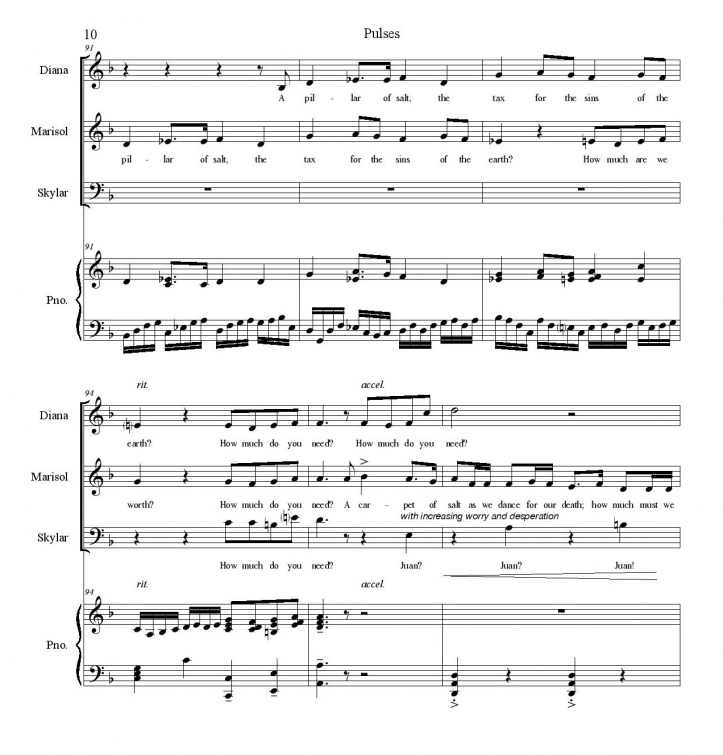
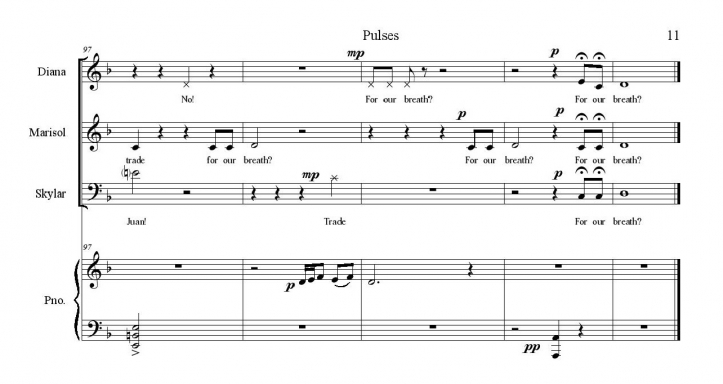
Biographies
Basil Considine (music) is the artistic director of Really Spicy Opera. He lives in Minneapolis, MN, and is a member of the Schola Cantorum at the Basilica of St. Mary.
Courtney Stirn (lyrics) is a gender-queer playwright and librettist living in Minneapolis, MN.





